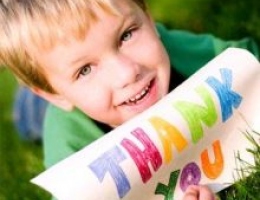On this video: Ukraine war: A village celebrates Russian retreat.
Kurama
(Japan)
POETS IN VELYKI PROHODY
The remains of New Year decorations.
Which had not been removed.
Before ‘orcs’ invasion on February 24.
In the village of Velyki Prohody.
A Christmas tree.
Wrapped in suspicious looking wires grows.
On the lawn near an abandoned village building.
False alarm. The wires are not explosives.
It is dangerous to go closer.
You can come across a mine anywhere here.
Near the eastern Ukrainian city of Kharkiv.
10 kilometres from the ‘Mordor’’s border.
Over the past weeks.
‘Elves’ army in a rapid offensive.
Liberated dozens of villages like this one.
But ‘orcs’ army has left its mark.
On the wall behind the Christmas tree.
A large white letter.
“Z” is visible.
The sign is everywhere:
On old cars, farm equipment, fences.
On the walls of gutted houses.
Some, though, have now been painted.
Over with fresh paint.
In some streets.
There is not one single surviving house.
There are burnt cars along the roads.
A battered armoured vehicle is rusting in the bushes.
Its caterpillar track placed.
Near the edge of the road.
Now serves as a speed limiter.
In front of the checkpoint.
The remains of New Year decorations.
Which had not been removed.
Before ‘orcs’ invasion on February 24.
In the village of Velyki Prohody.
Of the several dozens of farmers.
Who survived the occupation.
In the village of Velyki Prohody.
There are mainly elderly people.
The residents of the village speak.
About detentions, abuse and forced labour.
‘Elves’ military showed the place.
Where ‘orcs’ soldiers threw the bodies.
They were three ‘elves’ soldiers.
Who died in battles at the beginning of the war.
Left lying on a pile of rubbish.
Among some bushes.
Their bodies will be taken.
For examination.
And buried with military honours.
By ‘elves’ hands.
The remains of New Year decorations.
Which had not been removed.
Before ‘orcs’ invasion on February 24.
In the village of Velyki Prohody.
In the village council building.
‘Orcs’ soldiers and officers lived.
Judging by the hand-made plaques on the doors.
This building served as a military hospital.
There is an isolation room and other wards.
An icon of St. Nicholas.
‘Mordor’’s most beloved saint.
Is hanging on the wall.
Also two children's drawings.
One of them features a red flower.
And a heart surrounded by.
Five-pointed stars and the letter Z.
The other portrays a girl in headphones.
Standing on a rainbow, facing the sun.
And holding two red hearts in her hands.
With a grey letter Z hesitantly drawn in the corner.
The remains of New Year decorations.
Which had not been removed.
Before ‘orcs’ invasion on February 24.
In the village of Velyki Prohody.
There are no children.
On the streets.
No one is hurrying.
To return to the village.
A wire is stretched.
At the roadside.
Hinting at the dangers.
Of leaving the path.
Mines can be found anywhere here.
In the grass.
In the bushes.
In both destroyed and intact houses.
One of the explosives experts pulls.
A rectangular, bent, sand-coloured box.
On thin legs from the boot.
Of his car.
It’s a MON-50 anti-personnel mine.
That he found in the grass near the village council.
Such mines are prohibited by an international convention.
Although ‘Mordor’ has not signed up to it.
“Imagine, this land is still full of shells.
From the Second World War,” he says.
Muffled explosions are heard.
Over the horizon.
The remains of New Year decorations.
Which had not been removed.
Before ‘orcs’ invasion on February 24.
In the village of Velyki Prohody.
* * *
Kurama
(Japan)
POETS WITH CONFLICTED VIEWS
Over a hundred people live.
In the village of Velyki Prohody.
The inscription on the gate says.
“People live here”.
‘Orcs’ sent him to “the pit” twice.
And searched his house four times.
He is a pensioner.
And a former electrician and mechanic.
“Of course, I'm glad.
That the village has been liberated.
I was a partisan here.
For six months.”
“Every day was a war for me.
My personal war,” he says proudly.
He stole ammunition.
From ‘orcs’ soldiers.
He put bars of soap.
Into their fuel tanks.
He drained diesel.
From their vehicles.
He suspects that one of the neighbours.
Reported his activities.
Because he was subjected.
To regular searches of his house.
And twice he was put into “the pit”.
This was a dark basement.
In the nearby village of Mali Prohody.
Which served as a prison.
He was taken there.
With a sack on his head.
“I learned that basement inside out.
I could distinguish people by only their voices.”
“The floor was wet.
Nothing to lie on.
A few torn tyres.
Nothing else.”
His ‘orcs’ captors didn’t seem to care about.
The conditions in which he was kept.
They would bring him food that had gone off.
Conditions were overcrowded.
“You ask them:
‘Give me some toilet paper.’
You hear the answer:
‘I'll punch you in the face right now.’
Over a hundred people live.
In the village of Velyki Prohody.
The inscription on the gate says.
“People live here”.
His wife agrees.
“They never address you in a polite way.
No matter how old you are.”
She was also detained by ’orcs’.
Not in the basement.
But in the premises of an abandoned store.
“Eighteen men in a room.
And I'm the only woman.”
“Can you imagine?
I'm 64 years old.
No washing, nothing.
It's terrible.”
She was not tortured.
Or interrogated.
But she heard screams.
Through the walls.
Someone she believes was being electrocuted:
“At first we thought they were torturing a child.
Because a young voice was screaming.
It turned out that it was a woman.”
Over a hundred people live.
In the village of Velyki Prohody.
The inscription on the gate says.
“People live here”.
Their village may be largely in ruins.
But he and his wife radiate joy.
“Now I have nothing to fear.
And I am not a chicken-hearted type.”
“I've become even more confident in myself.”
He brags to some ‘elves’ soldiers.
“Had I been younger.
I would have gone to the fighting with you.
“I don't even know what to say.
The hatred for these creatures has increased.”
He says in ‘orcs’ language.
Yet immediately he adds:
“But I know that there are decent guys.
Decent ‘orcs’. Of different ages.
And they don't want this war.
They don't want to shoot.”
He says that although most ‘orcs’.
In their village of Velyki Prohody.
Behaved extremely rudely and cruelly.
Some of them were compassionate.
The ‘orc’ soldier who guarded him.
During his first arrest.
Called him by the informal nickname.
“Uncle Sasha”.
And the ‘orc’ soldier told him:
“You are older than my father.
Forgive me.
For what is happening.”
Over a hundred people live.
In the village of Velyki Prohody.
The inscription on the gate says.
“People live here”.
His wife has similar conflicted views.
She has just called ‘orcs’ army.
“Cattle” and said.
“They bark at everything.”
But suddenly she remembers.
An encounter with an ‘orc’ soldier.
That makes her face light up:
“I have a grandson who is 26 years old.”
“And this one was very young.
Younger than my grandson.
He stands in front of me.
Thin, small.”
“Just a kid.
He stands and says:
“Oh, a plum.
He has never seen a plum.”
Over a hundred people live.
In the village of Velyki Prohody.
The inscription on the gate says.
“People live here”.
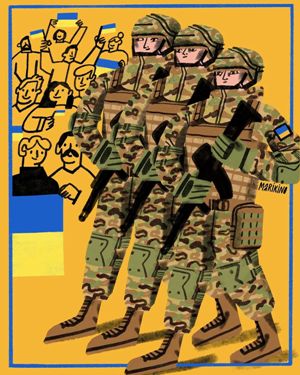
Painting by Mari Kinovych (instagram: @marikinoo).
Please read the original story:
Ukraine war: A village celebrates Russian retreat — BBC News
Read more:
"Aware of a poet?
Aware of a poet?
A poet of Cossack broods over the land.
Not noting a bullet.
Not noting a bullet.
You see a poet of Cossack in Borodyanka."
(Kurama)
.jpg)

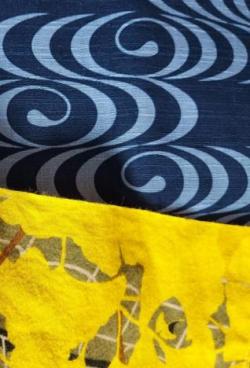
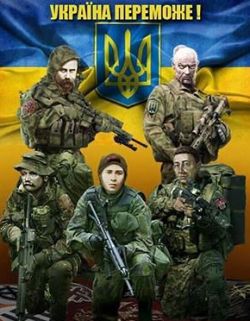
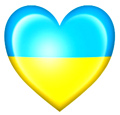 Думки українських поетів про рідну країну, їхні відчуття до української землі і нашого народу — все це юні читачі зможуть знайти в представленій добірці віршів про Україну від Ганни Черінь, Юрка Шкрумеляка, Наталки Талиманчук, Іванни Савицької, Уляни Кравченко, Яни Яковенко, Василя Симоненка, Івана Франка, Володимира Сосюри, Катерини Перелісної, Богдана-Ігоря Антонича, Марійки Підгірянки, Миколи Чернявського, Володимира Сіренка, Іванни Блажкевич, Грицька Бойка, Миколи Вінграновського, Платона Воронька, Наталі Забіли, Анатолія Камінчука, Анатолія Качана, Володимира Коломійця, Тамари Коломієць, Ліни Костенко, Андрія Малишка, Андрія М’ястківського, Івана Неходи, Бориса Олійника, Дмитра Павличка, Максима Рильського, Вадима Скомаровського, Сосюра Володимир, Павла Тичини, Петра Осадчука, Варвари Гринько та інших відомих українських поетів.
Думки українських поетів про рідну країну, їхні відчуття до української землі і нашого народу — все це юні читачі зможуть знайти в представленій добірці віршів про Україну від Ганни Черінь, Юрка Шкрумеляка, Наталки Талиманчук, Іванни Савицької, Уляни Кравченко, Яни Яковенко, Василя Симоненка, Івана Франка, Володимира Сосюри, Катерини Перелісної, Богдана-Ігоря Антонича, Марійки Підгірянки, Миколи Чернявського, Володимира Сіренка, Іванни Блажкевич, Грицька Бойка, Миколи Вінграновського, Платона Воронька, Наталі Забіли, Анатолія Камінчука, Анатолія Качана, Володимира Коломійця, Тамари Коломієць, Ліни Костенко, Андрія Малишка, Андрія М’ястківського, Івана Неходи, Бориса Олійника, Дмитра Павличка, Максима Рильського, Вадима Скомаровського, Сосюра Володимир, Павла Тичини, Петра Осадчука, Варвари Гринько та інших відомих українських поетів.